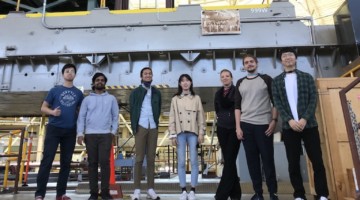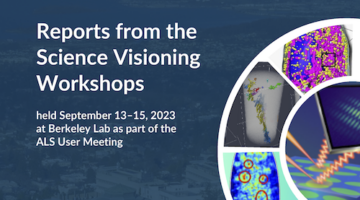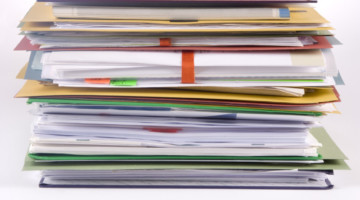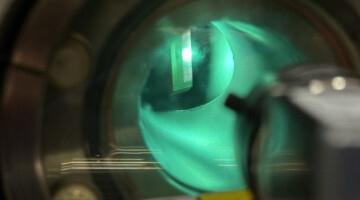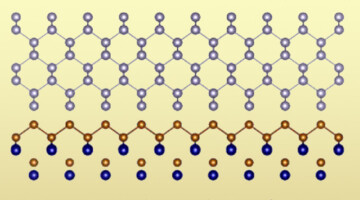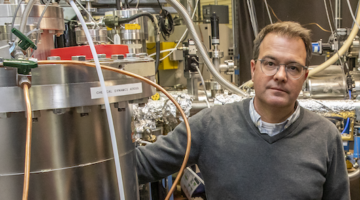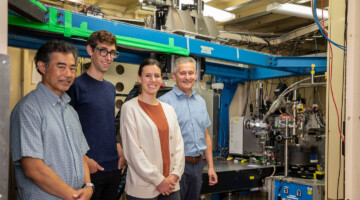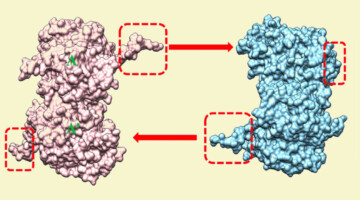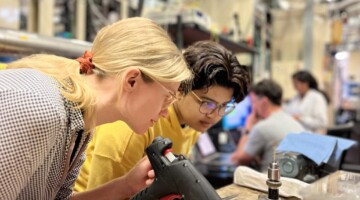Applications for the next round of ALS Collaborative Postdoctoral Fellowships are due November 1 for a start date of May 1, 2025. Fellows spend a year in residence at the ALS pursuing research projects in teams that include staff and the user community, and are exposed to current scientific challenges that can be tackled using advanced synchrotron radiation tools. Read more »
Reports from 2023 Science Visioning Workshops Published
The compiled reports from four ALS science visioning workshops held in 2023 are now published. The document reflects the user and broader scientific communities’ viewpoints on how the ALS’s science portfolio should evolve into the 2030s and where investments will be needed to realize the vision. Read more »
September 4 Deadline for General User Proposals—New Proposal Writing Guidelines!
Starting August 14, the User Office will accept new General User Proposals (GUPs) from scientists who wish to conduct research at the ALS in the 2025-1 (January–July) cycle. The deadline for submissions is September 4, 2024. We will publish new proposal writing guidelines by August 14, so please read the new guidelines before submitting a proposal. Applicants are reminded that they may request joint access to the Molecular Foundry, a nanoscience user facility at Berkeley Lab, to support their ALS activities. Read more »
Strategic ALS Projects Reach Key Milestones
Thanks to the hard work and dedication of multidisciplinary teams from groups across the ALS, a spate of important milestones occurred over the past month, for projects involving the new QERLIN beamline, the MERLIN beamline upgrade, and a new chamber for computer-chip metrology in Sector 12. Read more »
Stabilizing Pristine α-Sn Thin Films for Topological Investigation
Researchers developed a recipe for the room-temperature stabilization of thin films of α-Sn, a form of elemental tin that exhibits a variety of topologically nontrivial phases, but only at low temperatures. By dramatically reducing contamination from the film’s substrate, the recipe greatly simplifies electronic structure studies. Read more »![]()
Kevin Wilson to Receive 2024 Shirley Award
The ALS Users’ Executive Committee will recognize Berkeley Lab Senior Scientist Kevin Wilson as this year’s Shirley Award recipient. At the 2024 User Meeting he will present a talk on using synchrotron radiation to probe the multiphase chemistry of aerosols. Read more »
Caught in the Actinium
In this work, researchers demonstrated a macromolecular scaffold that combines an 8-coordinate synthetic ligand and a mammalian protein to characterize the solution and solid-state behavior of the longest-lived actinium isotope. The information could help design better cancer treatments. Read more »
Mechanistic Insight into a Viral-Factory Component
Recent protein-structure studies conducted at the ALS provided mechanistic insights into the function of a protein (σNS) involved in viral replication. Understanding these mechanisms will foster the development of therapeutic strategies against viruses that use σNS-like proteins to replicate. Read more »
ALS Computing Group Brings Machine Learning Models to Beamtimes around the World
The ALS computing team is developing tools to help users make the most of their beamtime and eliminate bottlenecks that currently exist. They have been traveling around the world and collaborating across facilities to develop advanced data processing solutions that will yield more meaningful data. Read more »
September Call for 2023 and 2024 Publications
All publications resulting from work done in whole, or in part, at the ALS must be recorded by the User Office for the Department of Energy (DOE). Please help ensure our records are complete by reporting your ALS publications, especially those published in 2023 and 2024. Read more »
- « Previous Page
- 1
- …
- 3
- 4
- 5
- 6
- 7
- …
- 28
- Next Page »
